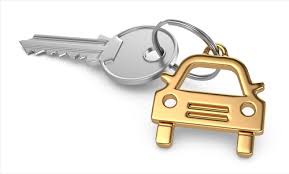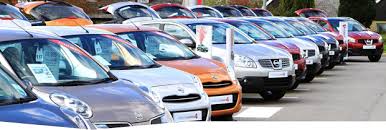PCPs driving down used car values? It’s already happening…
Last month, we warned that the values of used cars in Ireland are beginning to soften, having spent the last few years being overvalues thanks to restricted supply of cars from the period of 2009 to 2013. Now though, with new car sales rising and more one-and-two year old cars coming on to the used market, the values are starting to dip, and this has the potential to scupper the large number of PCP, or Personal Contract Purchase, deals in the new market.
How? Because a PCP relies on an accurate projection of the future used value of the car being purchased. The whole point of a PCP is that you use that value to defray some of the cost of borrowing, assuming that the final value will both cover the last section of the repayments (usually known as a ‘bubble payment’) and leave a little equity left over to act as the deposit for your next purchase.
The problems start to come when the values of used cars drop, which means that while dealers and car makers have to stand by the previously agreed minimum value of the car you have now, they will be left with stock on their forecourt which is, effectively, in negative equity. Hence the next PCP will cost more and have higher repayments to cover the gap in values.
Lessons from the UK car market
 In the UK we’re starting to see that effect at an accelerated, and somewhat concentrated rate. The UK market for new cars has been running at record levels in the past few years, in part fuelled by the relatively affordable PCP packages on offer. According to the UK’s Autocar magazine, large sales of specific models, such as the Ford Fiesta and Vauxhall (Opel) Corsa are having a disastrous effect on the second hand values of those models. There is a glut of nearly-new versions of these cars landing on the market as customers start trading in and renewing their PCPs.
In the UK we’re starting to see that effect at an accelerated, and somewhat concentrated rate. The UK market for new cars has been running at record levels in the past few years, in part fuelled by the relatively affordable PCP packages on offer. According to the UK’s Autocar magazine, large sales of specific models, such as the Ford Fiesta and Vauxhall (Opel) Corsa are having a disastrous effect on the second hand values of those models. There is a glut of nearly-new versions of these cars landing on the market as customers start trading in and renewing their PCPs.
Autocar quoted one confidential industry source as saying “the cars are going for less than they should because of the market conditions. It’s supply and demand. Even the part exchange values customers are being offered aren’t worth what they expected because of the change in the market. It means instead of upgrading their cars, they’re often forced to stick with what they’ve got.”
Now, the car makers are saying that the issue is not a nationwide one, and that it’s a case of certain models being especially popular in certain areas, causing localised dips in value. That may be the case, but that effectively can’t happen in Ireland. Aside from the outlying areas of the north and west coasts, nowhere in Ireland is now more than a couple of hours drive from Dublin, which means that the value of a car there is essentially going to be the value for the same car down the country. If that value softens, it’s going to affect every county. See our car valuation page for more on this.
PCP changing how a car is bought
 Other industry experts have said that the dip is a temporary one, as PCP is set to become the most popular way of buying a new car, and there’s something in that. With PCP, buying a car becomes more and more like buying a mobile phone – you’re thinking about your upgrade pretty much from the moment you get your new one.
Other industry experts have said that the dip is a temporary one, as PCP is set to become the most popular way of buying a new car, and there’s something in that. With PCP, buying a car becomes more and more like buying a mobile phone – you’re thinking about your upgrade pretty much from the moment you get your new one.
But that does seem to ignore the fact that the mobile phone market is rather different – there’s no real market for second hand phones, for instance. Phones are either traded in and recycled or their cost is effectively written off and they’re handed on to another family member or friend. Only a tiny proportion are ever sold on as second hand. For cars, it’s very, very different. The market for second hand cars in Ireland dwarfs the market for new ones, and they are effectively the bread and butter for the car industry here. With more and more buyers being tempted out of the second hand market by PCPs, and an ever growing glut of second hand metal coming on to the market, there’s only one way that values are going to go and that’s down. And that has the potential to destabilise the entire industry.
Sensitivity of the Irish car market
 After all, before the recession really started to bite in 2009, there were a great many car dealers in financial difficulty because of the sudden adjustment in used car values in 2008, when the tax system switched to Co2-based assessment and thousands of petrol-engined cars were suddenly unsellable.
After all, before the recession really started to bite in 2009, there were a great many car dealers in financial difficulty because of the sudden adjustment in used car values in 2008, when the tax system switched to Co2-based assessment and thousands of petrol-engined cars were suddenly unsellable.
Brian Merrigan is the head of BMW Finance in Ireland and he told us that he’s happy that car makers are building enough wiggle room into their valuations to keep things under control.“Once the levels of Used Car stocks increase across the country, values do drop, that’s pure market conditions. However the key to the success of a PCP is at the beginning of the New Agreement. We have an RVC (Residual Value Committee) made up of our own experts, and members from the Sales Company, we review and set Residual Values quarterly, based on re-marketing results, used car values actually being attained at Retailers, and a number of other sources. This is the key to its future success. If all equity is burnt up in deal number one, then it means the next one is harder to balance. In BMW Financial Services case, to date we have only had two Customers exercise their right to hand back the car at the end of the agreement, and in both cases we r-marketed them and did not make any loss.”
That’s potentially reassuring but the fact is that the car market is changing and doing so rapidly. PCP went from essentially non-existent in the Irish market to approaching dominance in a few short years and its repercussions could be far-reaching. As the new car market rushes forward towards a very different way of doing business, and a very different buying model for customers, the used car market is somewhat stuck in a simpler past. The gap between the two markets is growing rapidly, and bridging it could be financially painful for everyone involved.